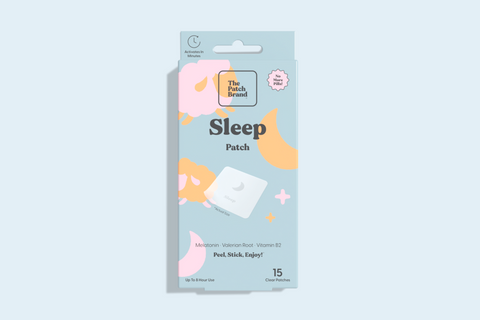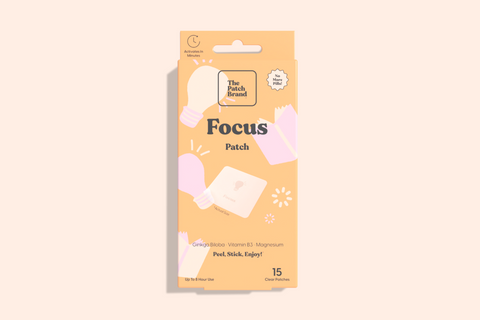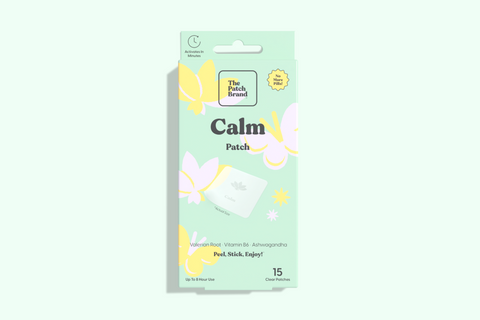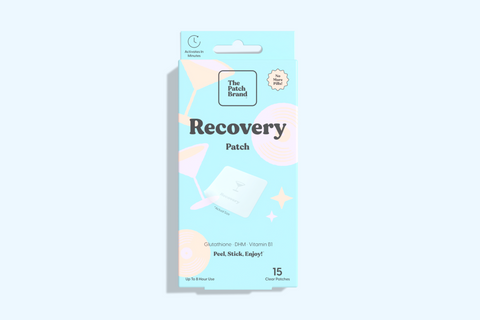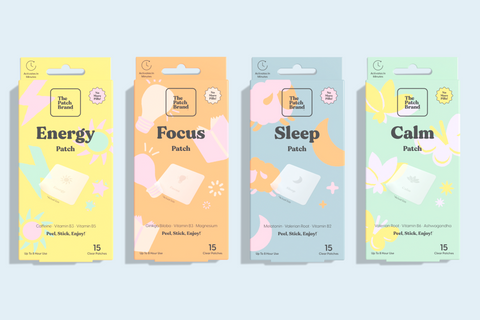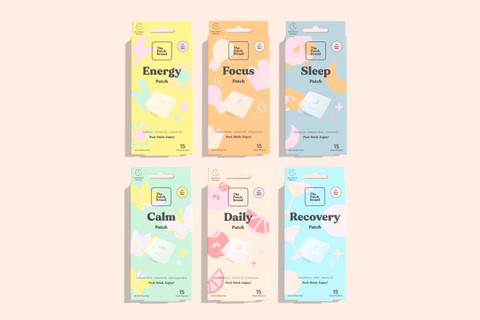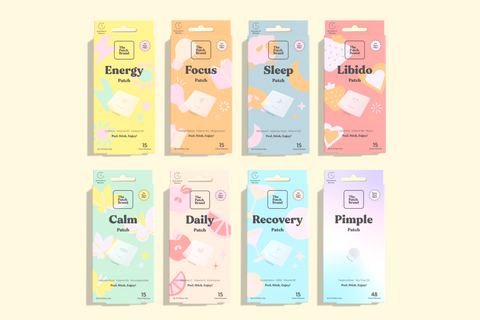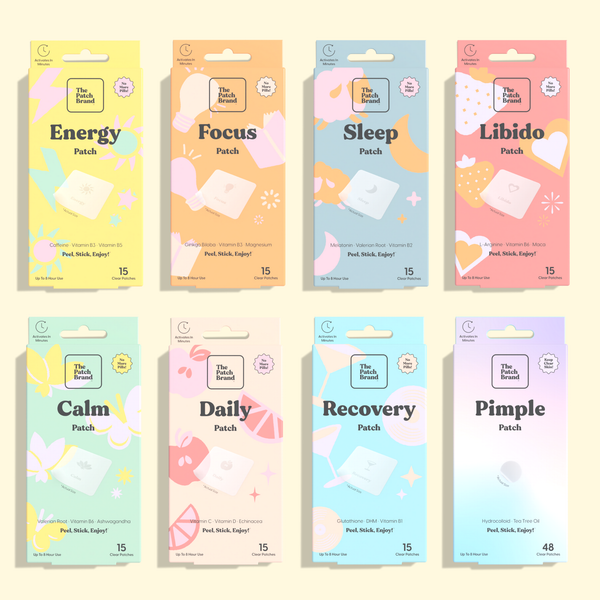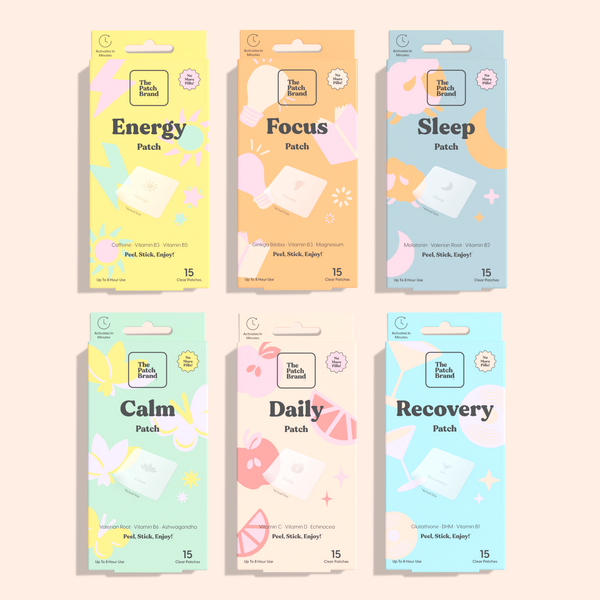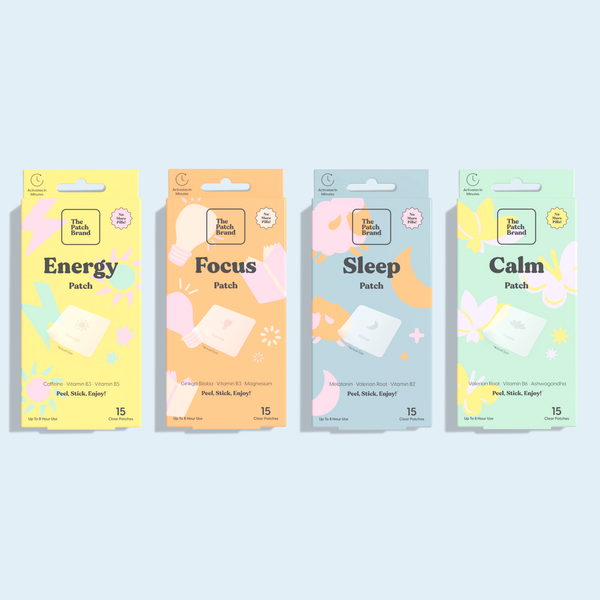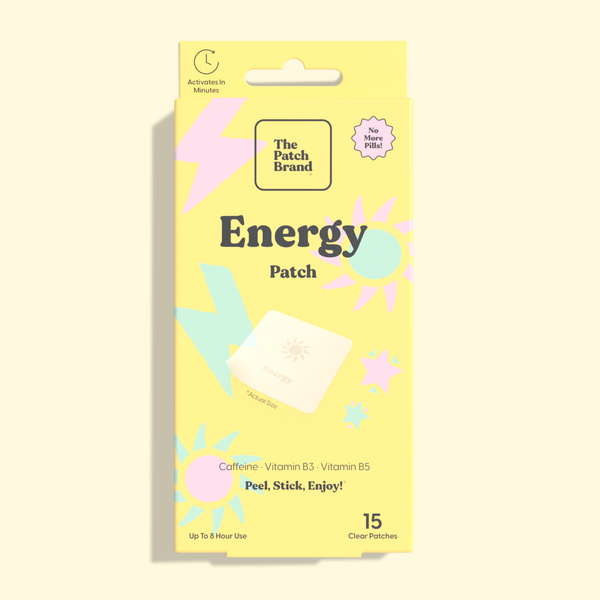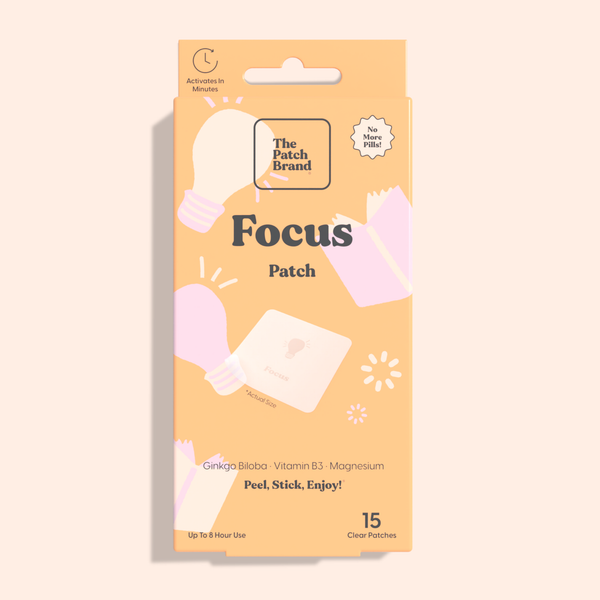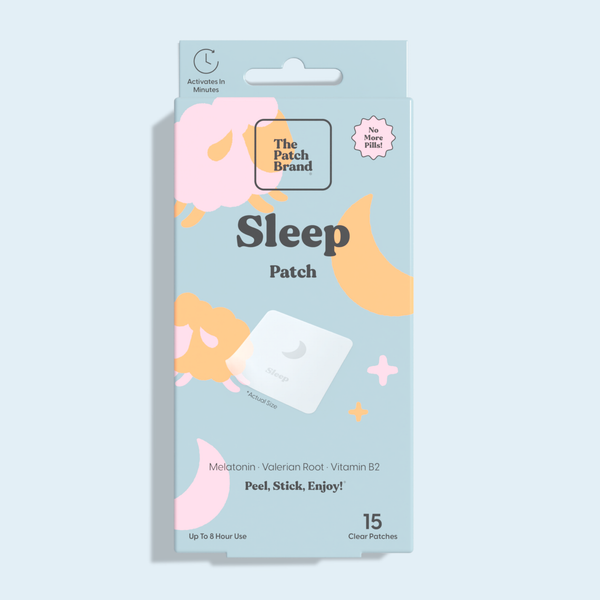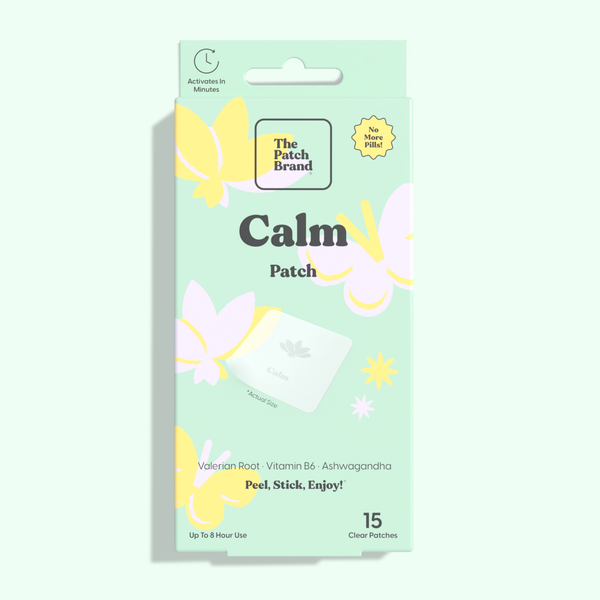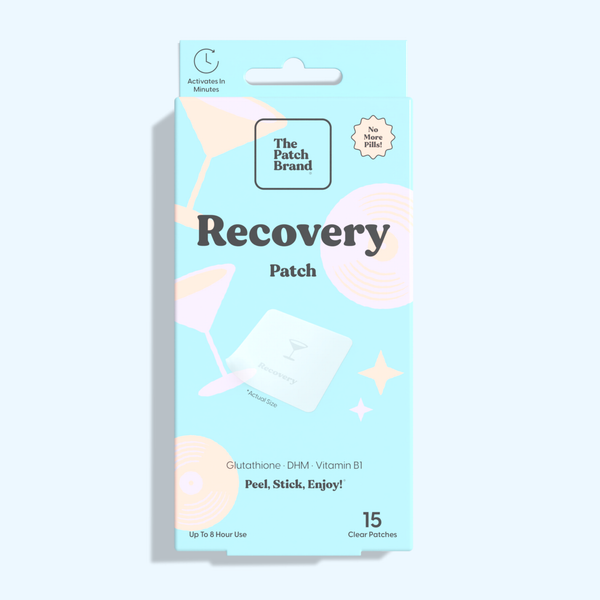Sleep is a vital component of our overall health and well-being. It is essential for the proper functioning of our bodies and minds. However, many people struggle with getting a good night's sleep, which can negatively impact their daily lives. There are several reasons why people may have difficulty sleeping, and understanding these underlying causes can help individuals find the most effective solution. One potential solution is the use of a
melatonin patch, which can help improve sleep quality by addressing some of the common causes of sleep struggles. In this blog post, we will explore five common causes of sleep difficulties and how
melatonin patches can help.
Stress and Anxiety
The Stress-Sleep Cycle
The stress-sleep cycle is an insidious loop where stress leads to poor sleep, which in turn, increases stress levels, creating a worsening spiral. When under stress, the body's fight-or-flight response is activated, which can make calming down and transitioning to sleep exceptionally difficult. This lack of sleep diminishes the body's ability to function optimally, affecting cognitive processes, emotional regulation, and physical health. Consequently, the individual may experience heightened stress the following day due to fatigue and decreased resilience. This cycle can be tough to break without intervention. By addressing the root causes of stress and adopting healthy sleep practices, one can gradually diminish the impact of this cycle and enhance overall well-being.
Impact of Stress Hormones on Sleep
Cortisol, known as the stress hormone, plays a critical role in the human body's sleep-wake cycle. Under normal circumstances, cortisol levels rise and fall throughout the day in a pattern that supports our natural circadian rhythms. However, during periods of sustained stress, cortisol levels can remain unnaturally high, disrupting this natural cycle. Elevated cortisol at night delays the onset of sleep and contributes to lighter, less restorative sleep stages. This disruption can lead to frequent awakenings and difficulty returning to sleep, resulting in a non-restful night. Over time, disrupted sleep can lead to serious health issues such as weakened immune function, weight gain, depression, and anxiety. Managing cortisol levels through stress reduction techniques and lifestyle adjustments is essential for maintaining healthy sleep patterns and overall health.
Tips to Manage Stress and Anxiety for Better Sleep
Maintaining mental and physical health is essential, and managing stress and anxiety plays a critical role in achieving better sleep. By incorporating stress-reduction techniques into your daily routine, you can significantly improve your sleep quality. Such methods help to ease the body into a state of relaxation, making it simpler to fall asleep and enjoy a more restful night. Here are some effective strategies:
-
Deep Breathing: This technique involves taking slow, deep breaths to activate the parasympathetic nervous system, the part of your body that controls relaxation. Deep breathing helps to lower heart rate and blood pressure, creating a calm state that is conducive to falling asleep more easily. Practicing this regularly before bed can significantly ease the transition into sleep, reducing the time it takes to fall asleep.
-
Meditation: Meditation offers a profound mental break and can significantly lower anxiety levels. By focusing on the present moment and clearing the mind of chaotic thoughts, meditation reduces stress and induces a state of peace and stillness. This practice can be particularly effective in managing racing thoughts and worries that often interfere with sleep, making it easier to relax at bedtime.
-
Physical Activity: Engaging in regular physical activity is a potent tool for reducing levels of stress hormones like cortisol and adrenaline. Exercise also physically healthily tires the body, making it easier to fall asleep. Activities such as walking, cycling, or yoga can improve sleep quality by promoting faster sleep onset and deeper sleep cycles, thus enhancing overall sleep quality.
-
Calming Bedtime Routine: Establishing a soothing bedtime routine signals to your body that it's time to wind down and prepare for sleep. This might include activities like reading a book, taking a warm bath, or practicing gentle yoga. Such routines help to create a psychological barrier between the day's stress and bedtime, fostering a conducive environment for sleep.
By consistently applying these techniques, you can not only improve the quality of your sleep but also manage the anxiety and stress that often hinder a good night's rest. Over time, these practices can transform your approach to bedtime, turning it into a peaceful retreat from the day's challenges, rather than a continuation of them.
How Melatonin Patches Can Help
Melatonin patches can be
a useful sleep aid for those struggling with stress and anxiety. By delivering melatonin, a natural hormone that regulates sleep, through a transdermal patch, they can help promote relaxation and support a more restful night's sleep.
Poor Sleep Hygiene
Inconsistent Sleep Schedule
Maintaining a consistent sleep schedule is crucial for optimal health and well-being. Our bodies thrive on regularity, and the internal body clock, or circadian rhythm, plays a significant role in this. When we go to bed and wake up at different times each day, it can confuse our biological clock, making it harder for us to fall asleep and wake up naturally at the desired times. This disruption can lead to feelings of grogginess and impair our ability to function optimally during the day. By setting a fixed bedtime and wake-up time, we can help regulate our circadian rhythm. This consistency not only makes it easier to fall asleep but also improves the quality of sleep we get, enhancing our overall health and mood. Establishing and adhering to a consistent sleep schedule is a simple yet effective way to promote better sleep and increase our daily productivity.
Exposure to Blue Light Before Bedtime
Exposure to blue light in the evening, particularly from screens such as smartphones, tablets, and computers, is a common barrier to good sleep. Blue light has a high frequency which can interfere with the production of the hormone melatonin, which signals to our bodies that it is time to sleep. As a result, when we use these devices before bed, it can take longer to fall asleep, and the sleep we do manage to get is often of poorer quality.
To combat this, experts recommend avoiding screens for at least an hour before bedtime. If avoiding screens is not possible, consider using settings or apps that minimize blue light exposure by filtering out the blue spectrum or shifting your display to warmer tones. Additionally, wearing glasses that block blue light can be an effective measure. By controlling our exposure to blue light in the evening, we can enhance our body's natural ability to wind down and prepare for a restful night's sleep.

Sleep Disorders
Insomnia
Insomnia is a common sleep disorder characterized by persistent trouble in either falling asleep, staying asleep, or both. People with insomnia often experience significant distress and disruptions in their daily activities due to insufficient sleep. This condition can manifest as short-term (acute) insomnia, which may last for days or weeks and is often triggered by stress or a traumatic event. On the other hand, chronic insomnia lasts for a month or longer and can stem from various factors including underlying medical or psychological issues.
The effects of insomnia extend beyond simple tiredness, as it can lead to mood disturbances, and decreased productivity, and can exacerbate chronic diseases. If you find yourself lying awake at night frequently or waking up still feeling tired, you might be experiencing symptoms of insomnia.
Sleep Apnea
Sleep apnea is a serious medical condition where an individual's breathing repeatedly stops and starts during sleep. There are two main types: obstructive sleep apnea, the more common form, which occurs when throat muscles intermittently relax and block the airway during sleep, and central sleep apnea, which occurs when your brain doesn't send proper signals to the muscles that control breathing. Symptoms include loud snoring, episodes of breathing cessation witnessed by another person, abrupt awakenings accompanied by gasping or choking, and excessive daytime sleepiness.
Restless Legs Syndrome
Restless Legs Syndrome (RLS), also known as Willis-Ekbom disease, is a neurological disorder that creates an uncontrollable urge to move one's legs. This urge usually comes with uncomfortable sensations often described as crawling, throbbing, or itching deep within the legs. These symptoms typically occur in the evening or nighttime hours when a person is sitting or lying down and can severely disrupt sleep and reduce quality of life.
Moving the legs relieves the discomfort temporarily, making it difficult for individuals with RLS to fall asleep or stay asleep, leading to significant daytime fatigue and mood swings. The exact cause of RLS is often unknown, though it may be associated with imbalances in dopamine, a chemical that helps regulate muscle movements.
Medical Conditions
Sleep quality can be significantly affected by various medical conditions. Understanding these conditions can help in seeking the right treatment and adjustments to improve nighttime rest. Here’s a detailed look at some common medical issues that can impact sleep:
-
Chronic Pain: Chronic pain is a persistent pain that can last weeks to years and significantly affects one's ability to get a good night's sleep. Individuals suffering from chronic pain often struggle to find a comfortable sleeping position, which can lead to frequent awakenings and difficulty in both falling and staying asleep. The continuous discomfort may not only shorten the total sleep time but also decrease the sleep quality by preventing the deep, restorative stages of sleep. Effective pain management, therefore, is crucial in improving sleep for those affected by chronic pain.
-
Gastroesophageal Reflux Disease (GERD): GERD is a condition where stomach acids frequently flow back into the tube connecting your mouth and stomach (esophagus). This backwash (acid reflux) can irritate the lining of your esophagus and is particularly problematic at night when lying down. Symptoms like heartburn, chest pain, and the regurgitation of food or sour liquid can interrupt sleep and make it hard to remain asleep throughout the night. Managing GERD often involves dietary changes, medications, and lifestyle adjustments to lessen symptoms and improve sleep quality.
-
Thyroid Issues: Thyroid disorders, including hypothyroidism and hyperthyroidism, can have profound effects on sleep. Hypothyroidism tends to make people feel tired during the day yet they often have difficulty sleeping at night. Conversely, hyperthyroidism can lead to symptoms like anxiety, night sweats, and an overactive mind that can make falling asleep difficult. Both conditions can also lead to restless legs syndrome, which causes uncomfortable sensations and an urge to move the legs while resting.
Understanding and addressing these medical conditions is crucial not only for improving sleep but also for enhancing daily functioning and quality of life. If you suspect that your sleep disturbances are related to a medical condition, it is important to consult with a healthcare professional. They can provide a proper diagnosis and treatment plan that can help mitigate these issues, leading to better sleep and a healthier life.

Aging
As the human body ages, several notable changes occur in sleep architecture, directly impacting both the quality and duration of sleep. For older adults, one common phenomenon is a shift in the circadian rhythm—the body's internal clock that regulates the sleep-wake cycle. This shift often leads older individuals to become sleepy earlier in the evening and wake up earlier in the morning. Furthermore, the proportion of restorative deep sleep, specifically the slow-wave and REM sleep stages, significantly decreases with age. These stages are crucial for memory consolidation and physical recovery, respectively. This reduction in deep sleep is compounded by an increased tendency to wake after sleep onset, meaning older adults often experience sleep that is more fragmented and less continuous.
Medications used to treat these various health issues can also interfere with sleep. For instance, drugs for hypertension or depression often affect sleep architecture or delay the onset of sleep. Environmental factors, such as the need for more frequent nighttime trips to the bathroom, further disrupt sleep. As a result, older adults might find it challenging to achieve the recommended 7 to 8 hours of sleep per night, leading to accumulated sleep debt.
Sleep struggles can be caused by a variety of factors, including stress and anxiety, poor sleep hygiene, sleep disorders, medical conditions, and aging. Understanding these common causes and finding appropriate solutions is essential for achieving better sleep and maintaining overall health.
Melatonin patches can be an
effective sleep aid for many individuals, as they support the body's natural sleep processes and can help promote relaxation and improved sleep quality. It is always essential to consult your healthcare provider before using melatonin patches or other sleep aids to ensure they are suitable for your specific situation. Remember, better sleep is achievable, and taking the right steps can lead to a more restful and rejuvenating slumber.



